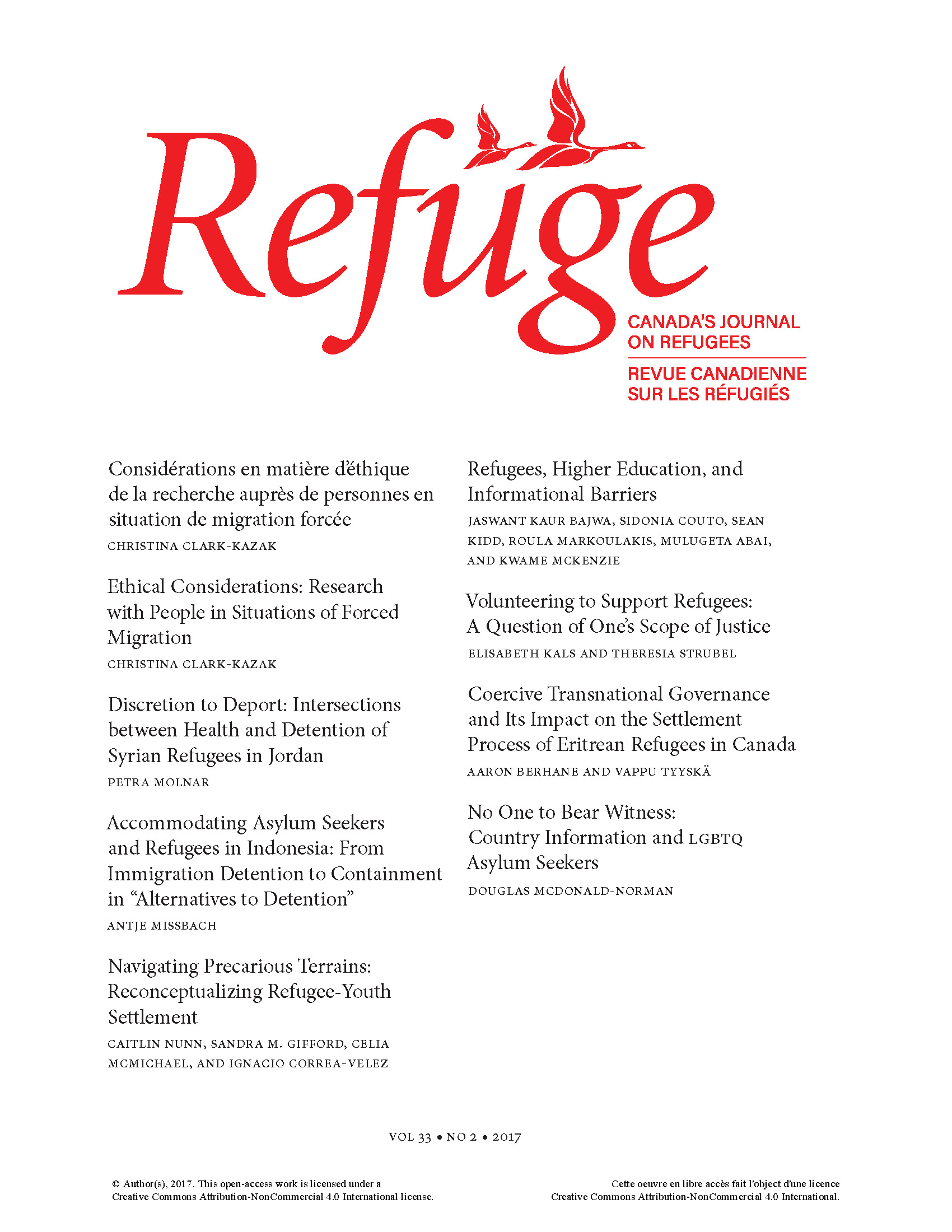Ethical Considerations: Research with People in Situations of Forced Migration
DOI :
https://doi.org/10.7202/1043059arMots-clés :
forced migration, research ethics, ethics, research with human beings, best practicesRésumé
Research can contribute to better understanding of the forced migration experience to inform policy and programming, but it can also cause inconvenience and harm to research respondents.[1] In situations of forced migration, the stakes are particularly high because of precarious legal status, unequal power relations, far-reaching anti-terrorism legislation, and the criminalization of migration. In response, the Canadian Council for Refugees, York University’s Centre for Refugee Studies, and the Canadian Association for Refugee and Forced Migration Studies collaborated to complement established ethical principles with specific ethical considerations for research with people in situations of forced migration. This document highlights our guiding principles and applies the ethical concepts of voluntary, informed consent; respect for privacy; and cost-benefit analysis. It is of relevance to anyone involved in gathering information—whether in an academic or community setting—and those who are asked to take part in research.
[1] Recognizing power relations inherent in facilitating true participation, this document uses the term respondent to indicate those individuals who are providing information as part of the research. In some ethics documents, the term human subject is used.
Statistiques
Téléchargements
Publié-e
Comment citer
Numéro
Rubrique
Licence
© Christina Clark-Kazak 2017

Cette œuvre est sous licence Creative Commons Attribution - Pas d'Utilisation Commerciale 4.0 International.
Les auteurs qui publient dans Refuge conservent le droit d’auteur associé à leur œuvre, et octroient au public une licence Creative Commons Attribution - Utilisation non commerciale 4.0 International. La licence permet l’utilisation, la reproduction et l’adaptation du matériel avec attribution par tous moyens et sous tous formats pour des fins non commerciales. Pour des informations générales sur les licences Creative Commons, visitez le site Creative Commons. Pour la licence CC BY-NC 4.0, consultez le résumé lisible par l'homme.







